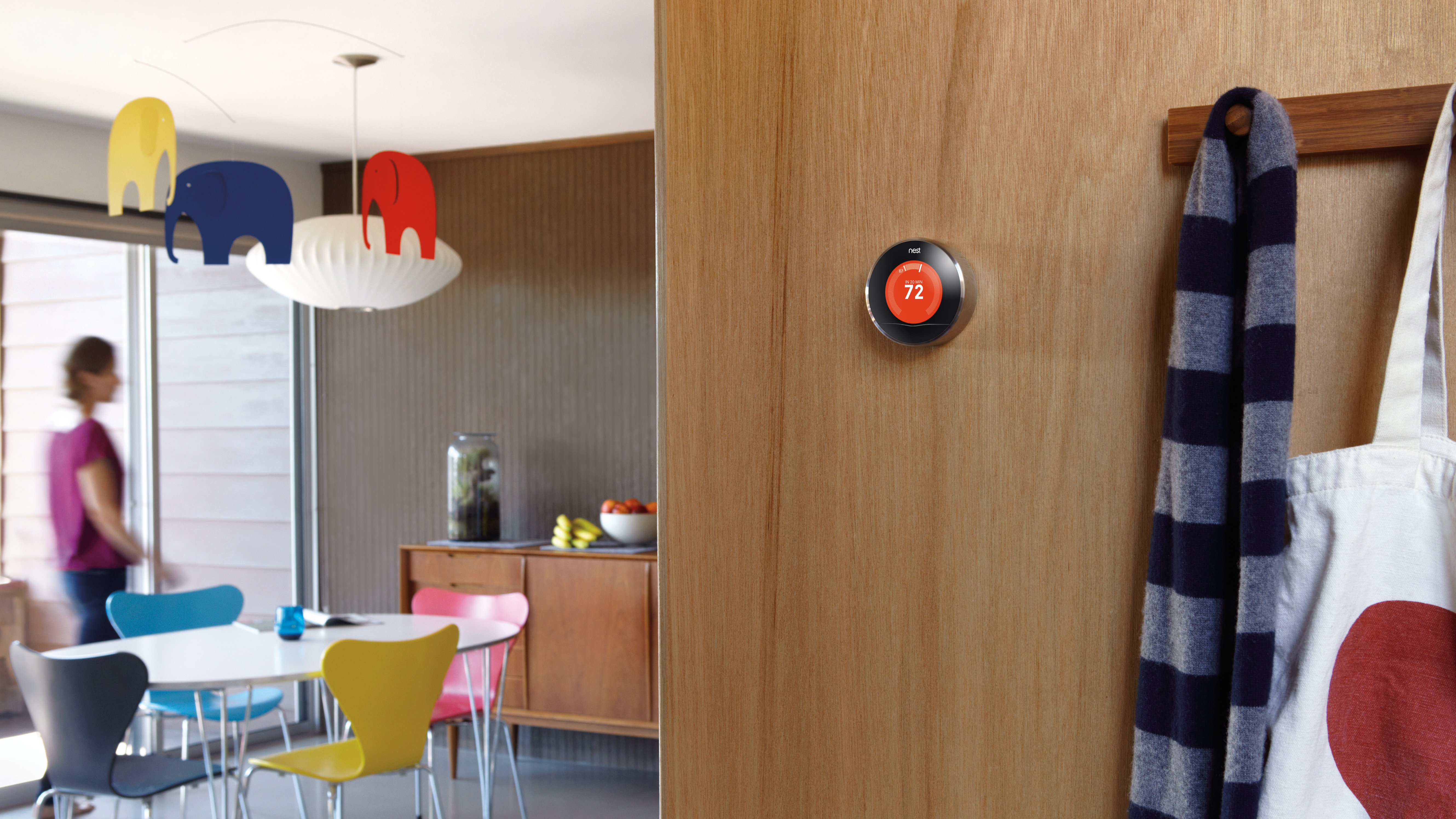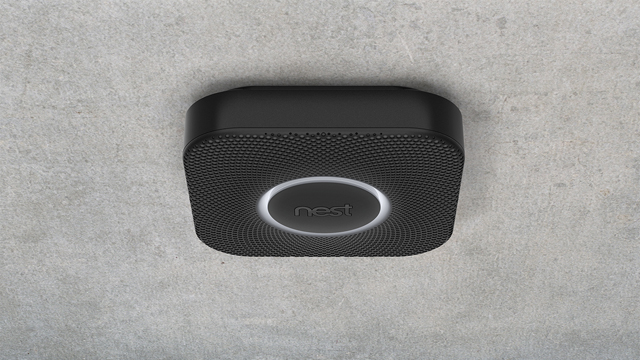Why has Google bought Nest?
Why Google is turning up the heat with its latest big buy
The Nest Thermostat has revolutionised how some US homes deal with energy consumption. It helps level out energy bills – a massive problem in some areas because of air conditioning use in the summer – and allows you to regulate the temperature in your home when you aren't there.

These are the smartest smart products around and, as Fadell explained to us, they are products that up until now nobody really cared about.
"Nest is all about getting those unloved things in your home, reinventing them and making you reawakened to them and make you embrace them in a whole new way," he explained.
These are everyday products rethought and a perfect way in for Google to take over our homes.
And take over our home is precisely what Google wants to do. It was no coincidence that in November, Google showed off a 'home of the future' in London, where it invited journalists to sample all the products Android is used in and where it can be used in the future.
Show and tell
Each room in the posh Fitzroy Square house was taken over by Google, where it showed off how you can stream media with the Chromecast – something that is still lacking in the UK – how Google Now is more effective than Siri in offering information and how YouTube can be used for recipes in the kitchen... it was Google showing off how it can run the home but it was a showroom lacking real substance.
Nest is the substance that Google was lacking. It brings with it the products that were truly needed to furnish Google's home of the future.
Get daily insight, inspiration and deals in your inbox
Sign up for breaking news, reviews, opinion, top tech deals, and more.
Being that this is Google, though, there are those that will take issue with this. The world has been, quite rightly, critical of Google's apparent nonchalance about the data of its users. It's been drummed into those who use a Google product that, rightly or wrongly, its services may be free but those who use them pay with their data.

Now Google has Nest - and when the deal officially goes through it will have a huge amount of data on the thing Fadell hates, the 'internet of things'.
We all have to remember that the internet of things isn't just about products linking together – the key part of that machine ecosystem is us, the user.
Your kettle may link up to your fridge in the future, but all the data inputted is about you – how you use these products, when you use them - all these snippets of data will eventually connect up so that when you turn off your smart TV, turn on your smart kettle, turn down your smart thermostat and open your smart fridge someone somewhere will know about this.
Google wants to be that someone.
This is all laid bare in Nest's post about the sale, where it explains: "From the beginning, our vision was to create a conscious home. A home that is more thoughtful, intuitive."
The only way to do this is through data – data Google will soon have control of, as the post continues: "Google will help us fully realize our vision of the conscious home and allow us to change the world faster than we ever could if we continued to go it alone. We've had great momentum, but this is a rocket ship.
"Google has the business resources, global scale and platform reach to accelerate Nest growth across hardware, software and services for the home globally."

Google buying Nest shows that the home is where the heart is for Google's future growth. Of course it will continue to advance smartphones but this is a market it already has a massive grip on. Of course it will continue search but this is a market it... well, you get the idea.
For Google to grow, it needs to expand into other areas. It failed once in the home with the PowerMeter, it failed again with the Nexus Q - but if you don't succeed just buy, buy and buy again.
Don't be surprised if Android@Home makes another appearance at this year's Google I/O. But this time front and centre of its plans will be one huge, valuable Nest egg.
Marc Chacksfield is the Editor In Chief, Shortlist.com at DC Thomson. He started out life as a movie writer for numerous (now defunct) magazines and soon found himself online - editing a gaggle of gadget sites, including TechRadar, Digital Camera World and Tom's Guide UK. At Shortlist you'll find him mostly writing about movies and tech, so no change there then.
